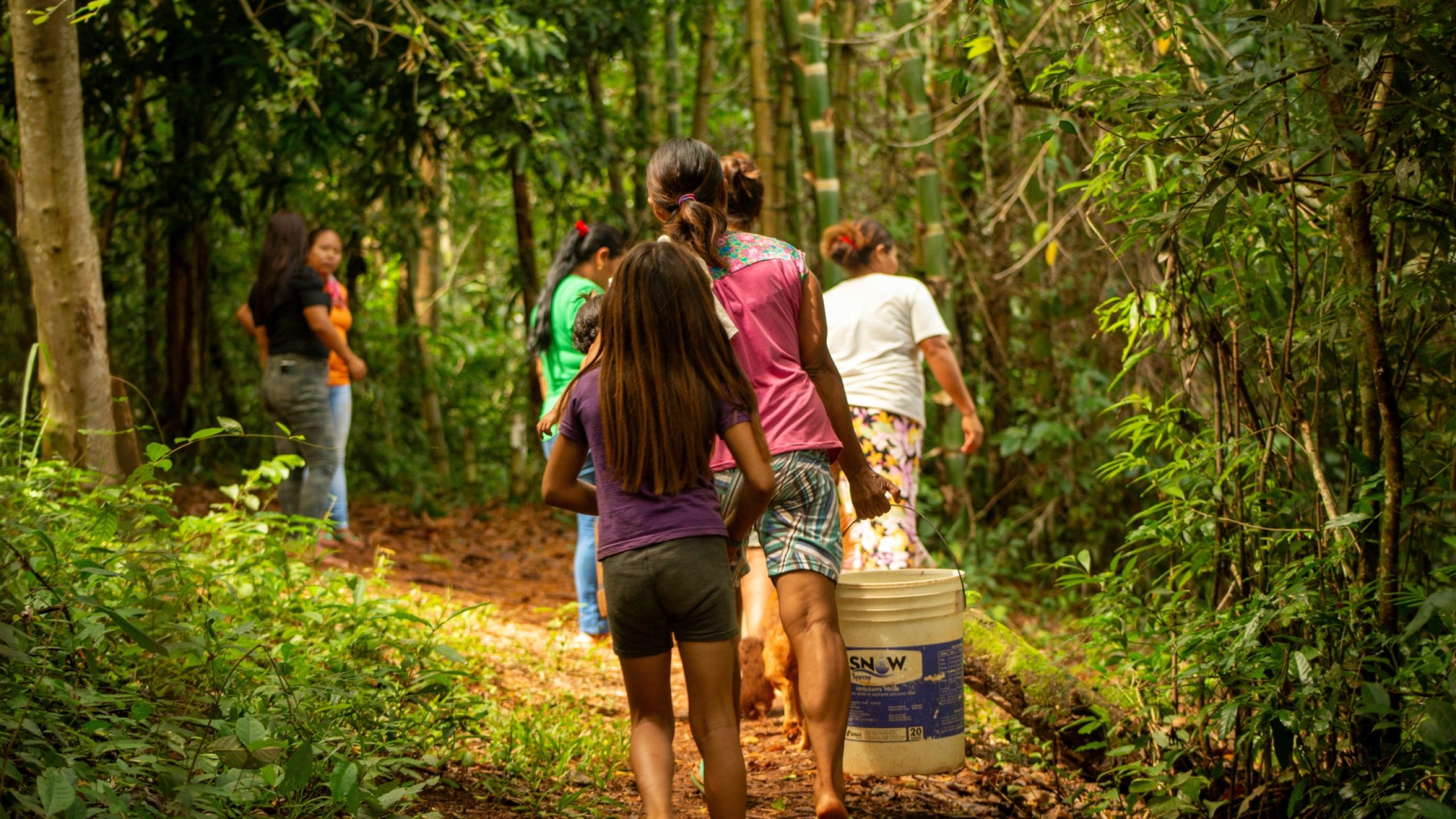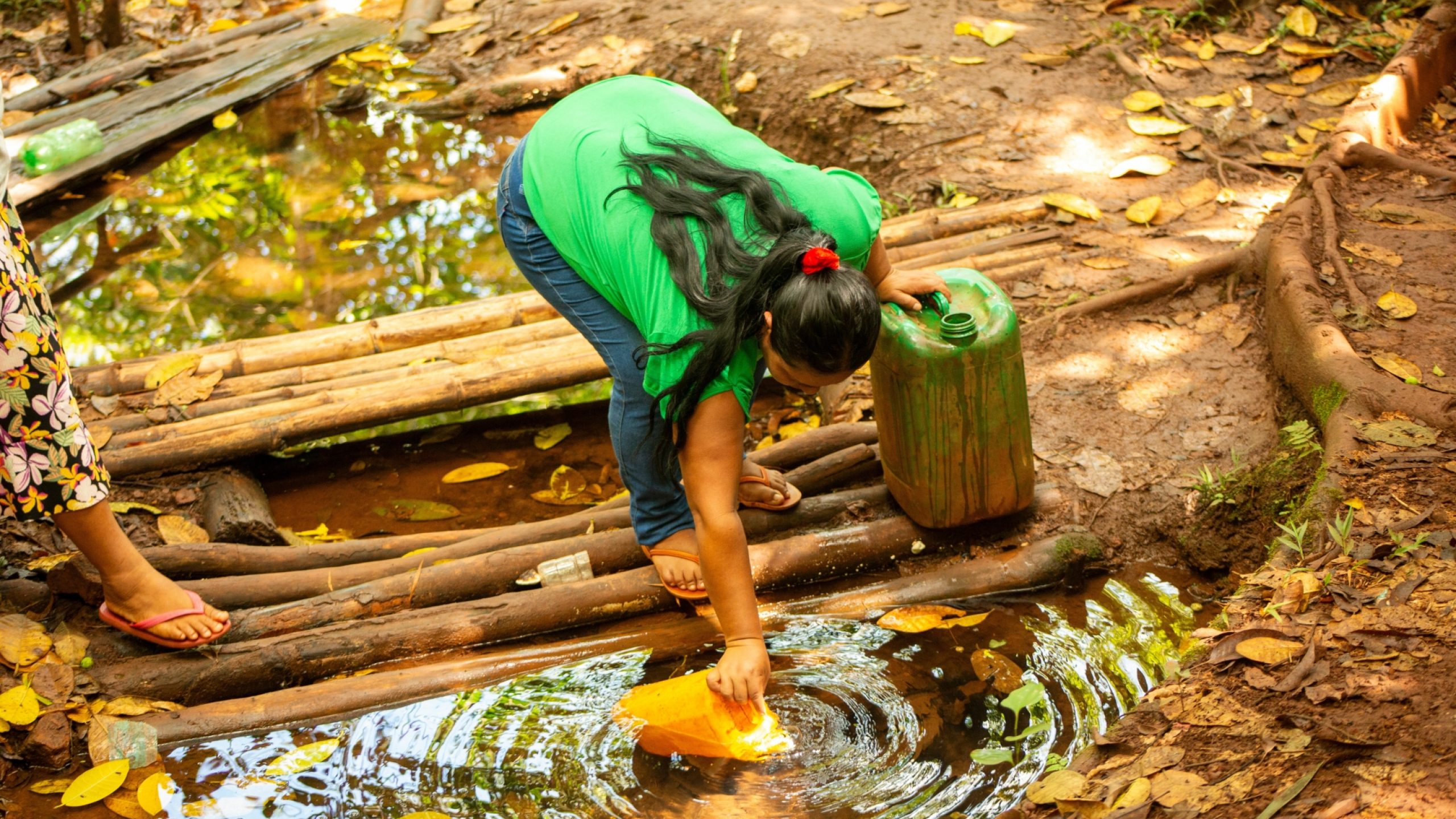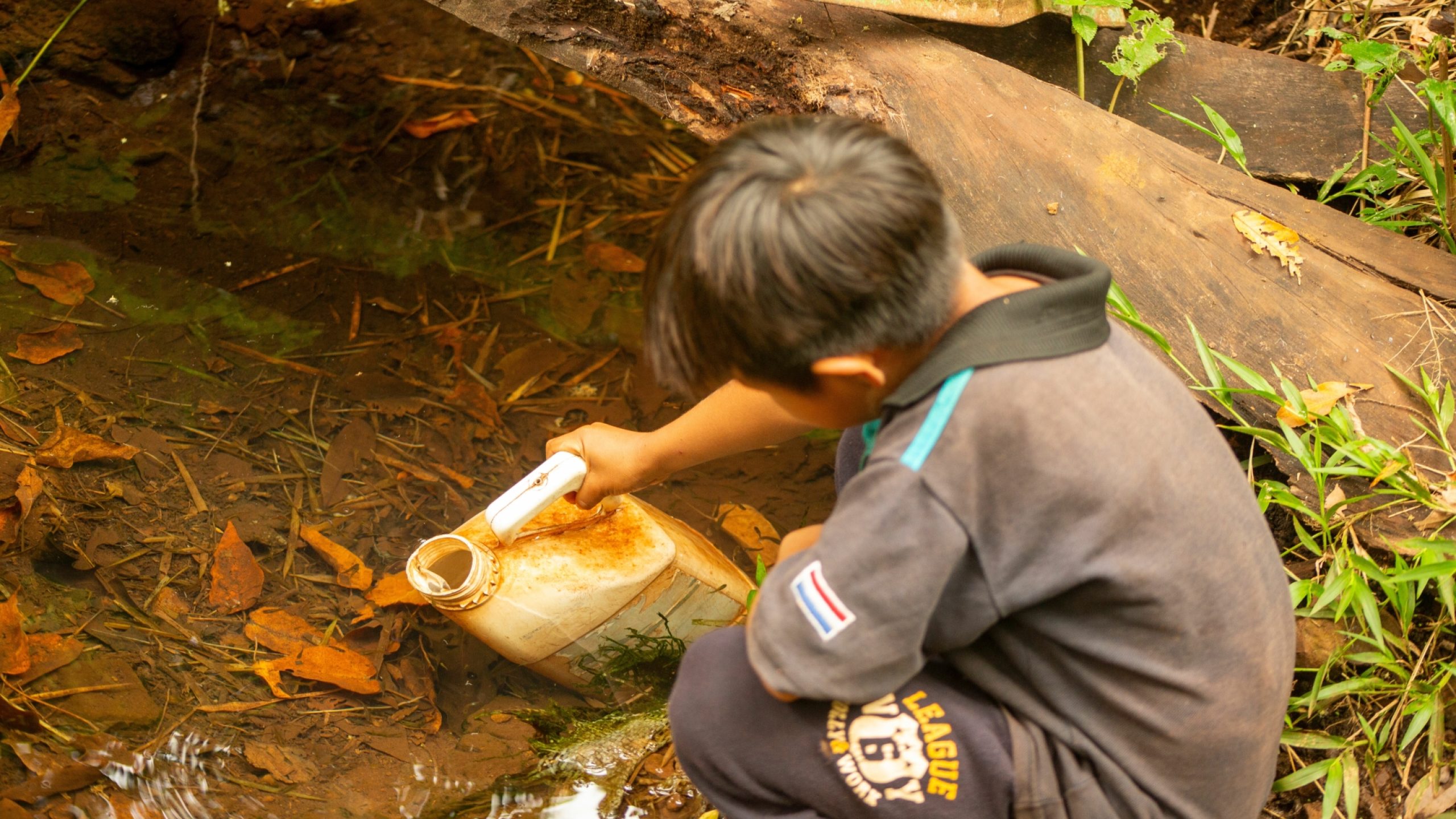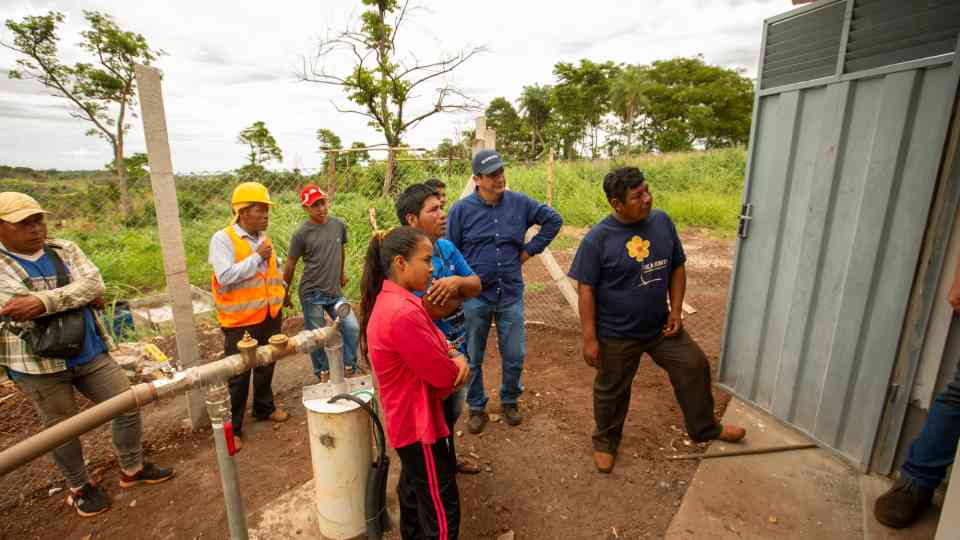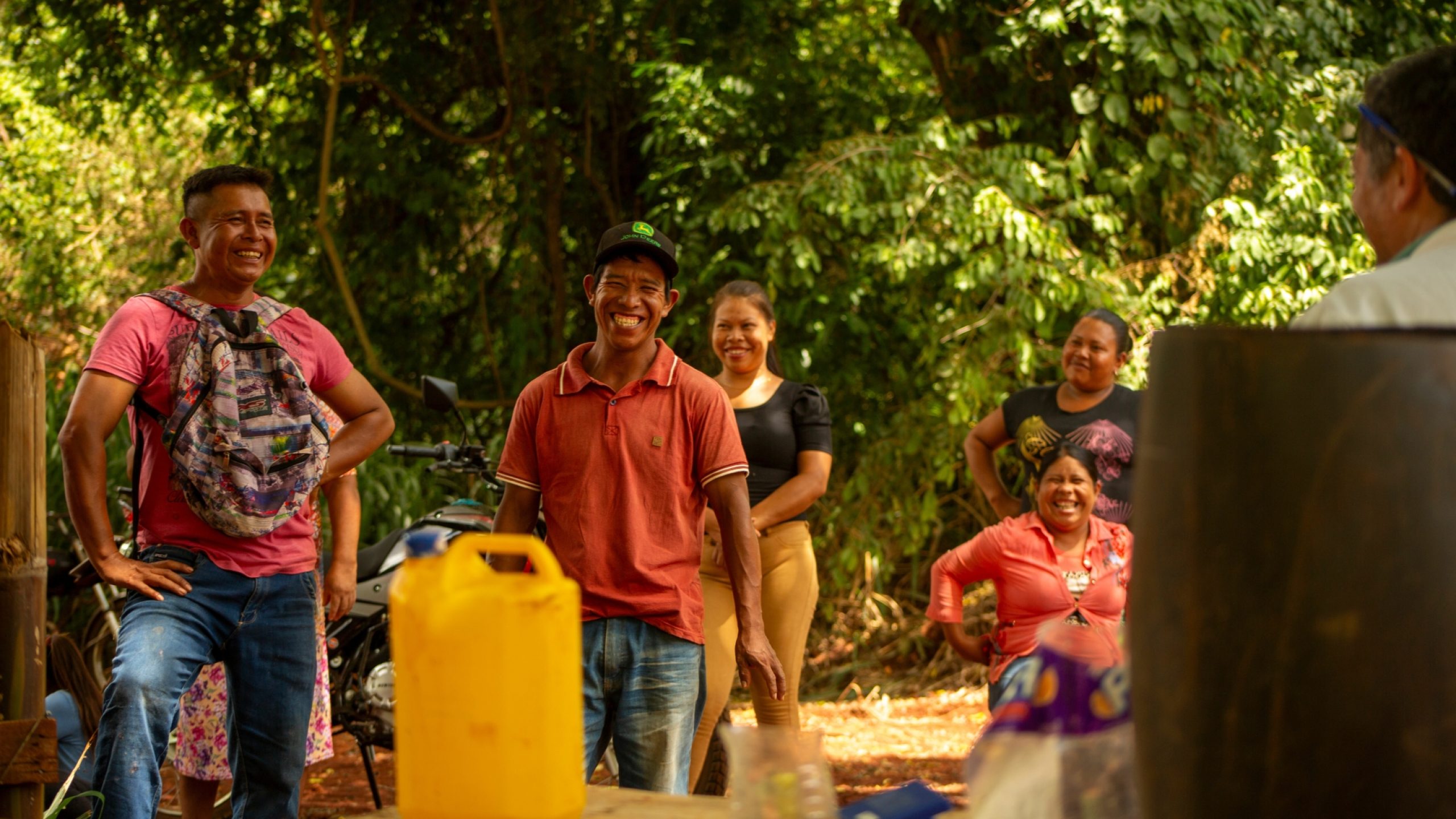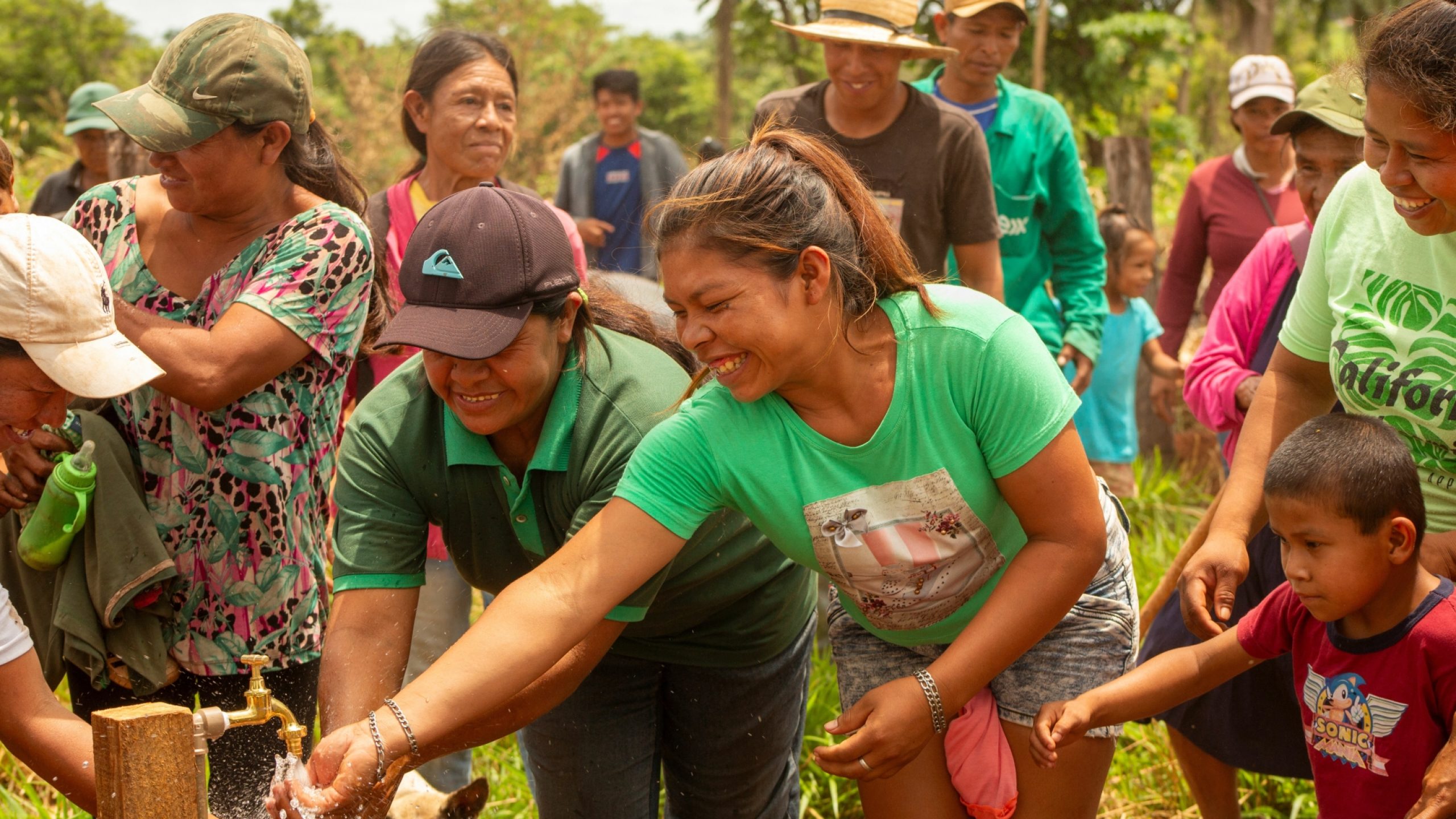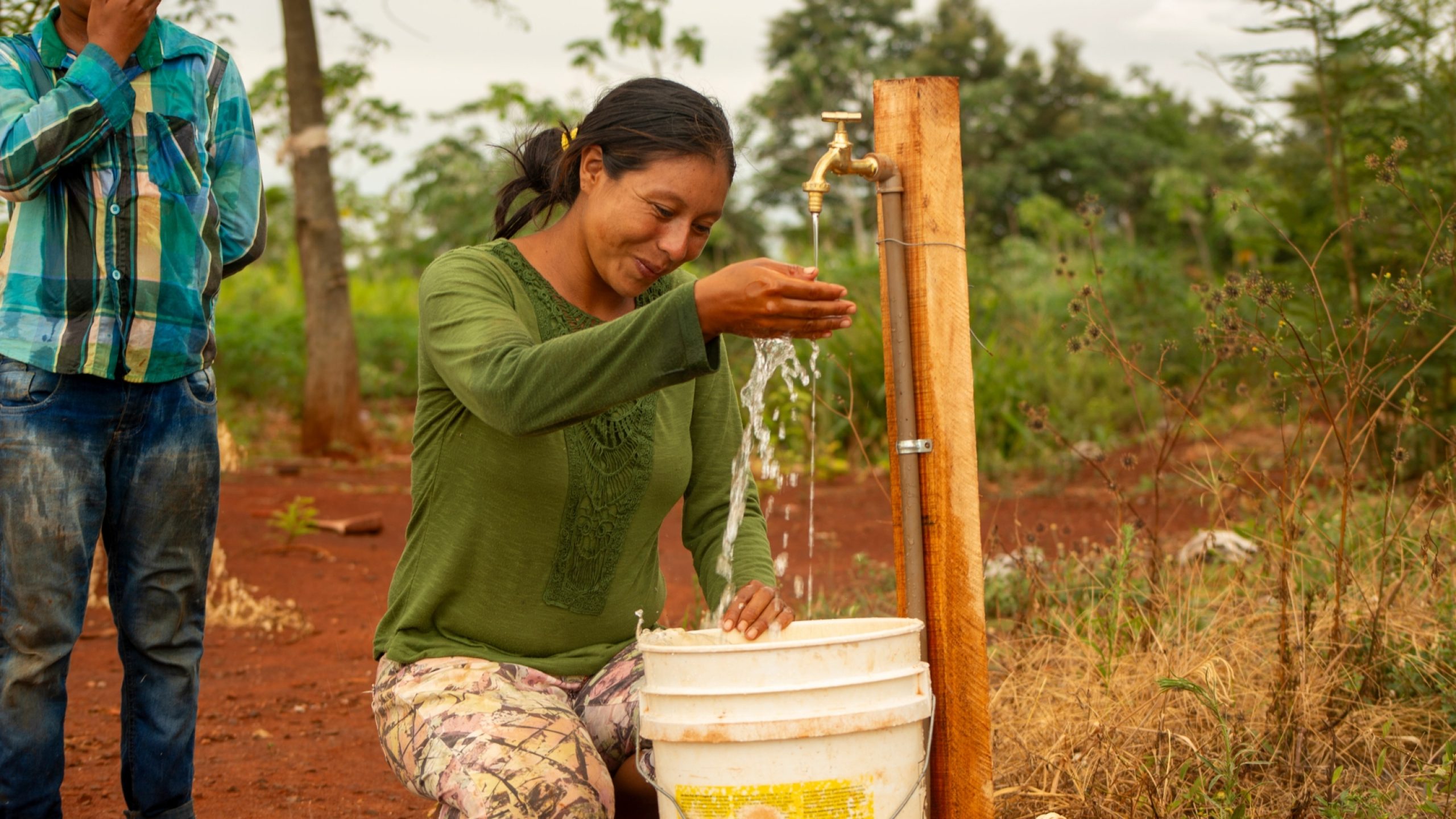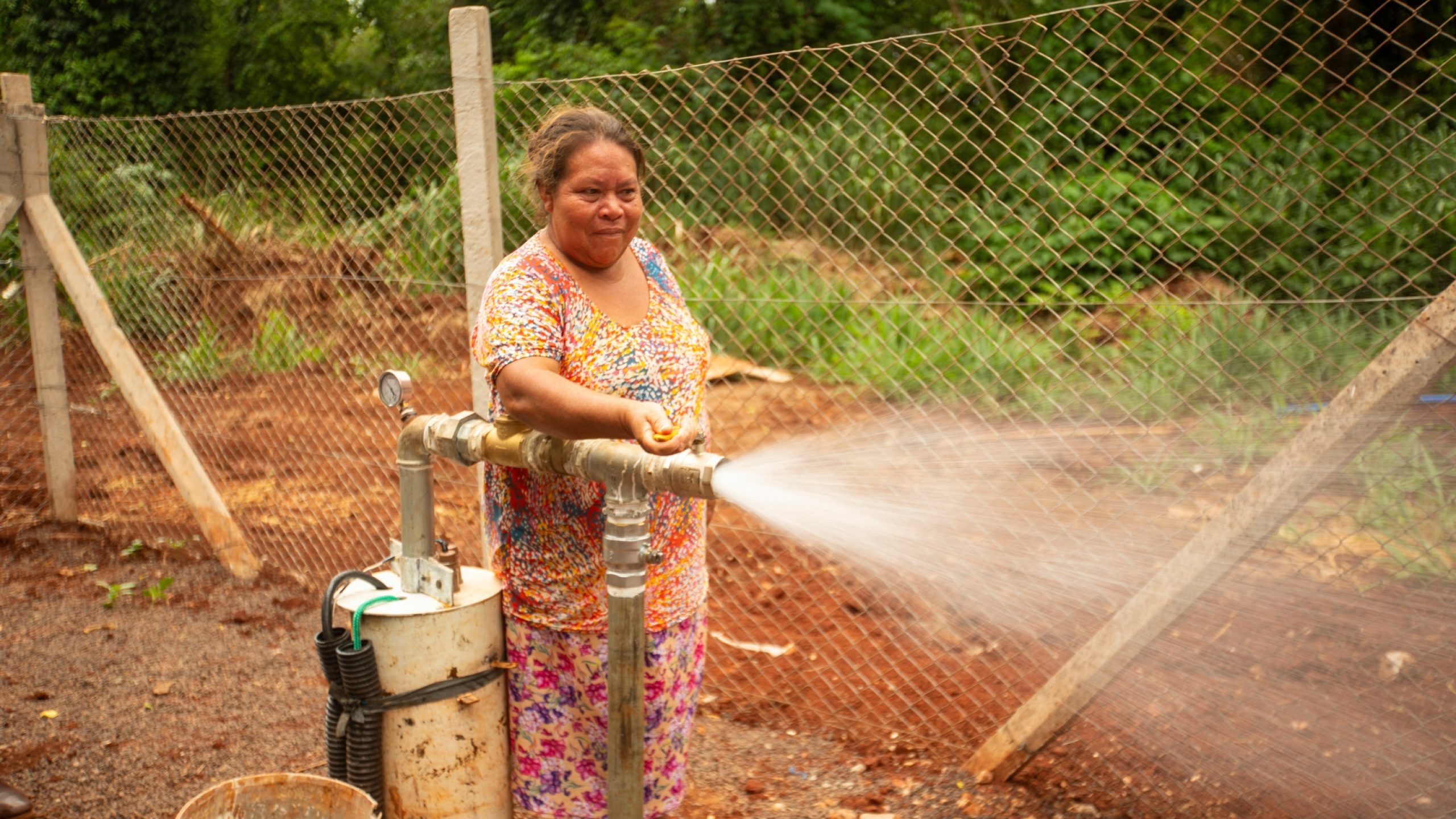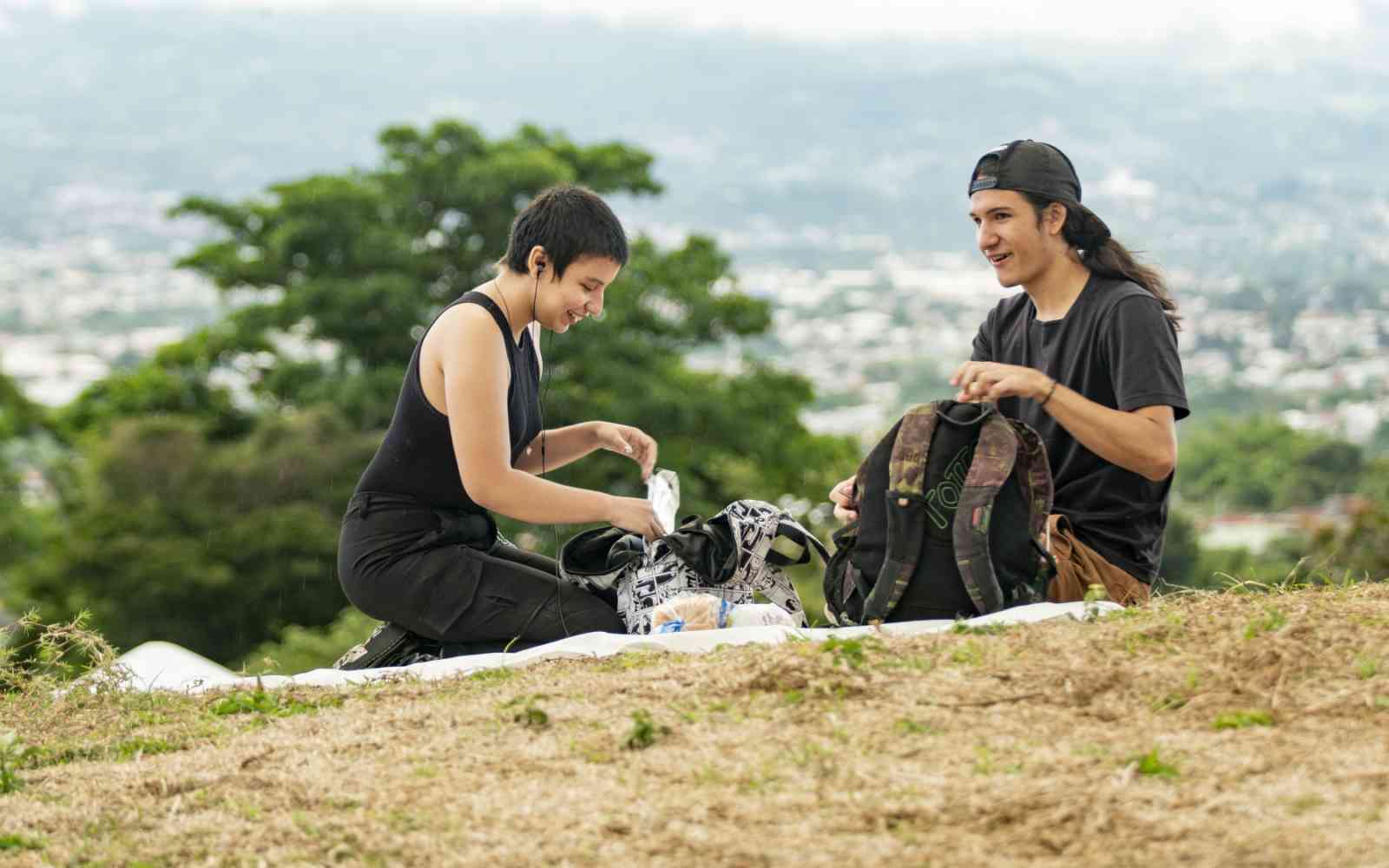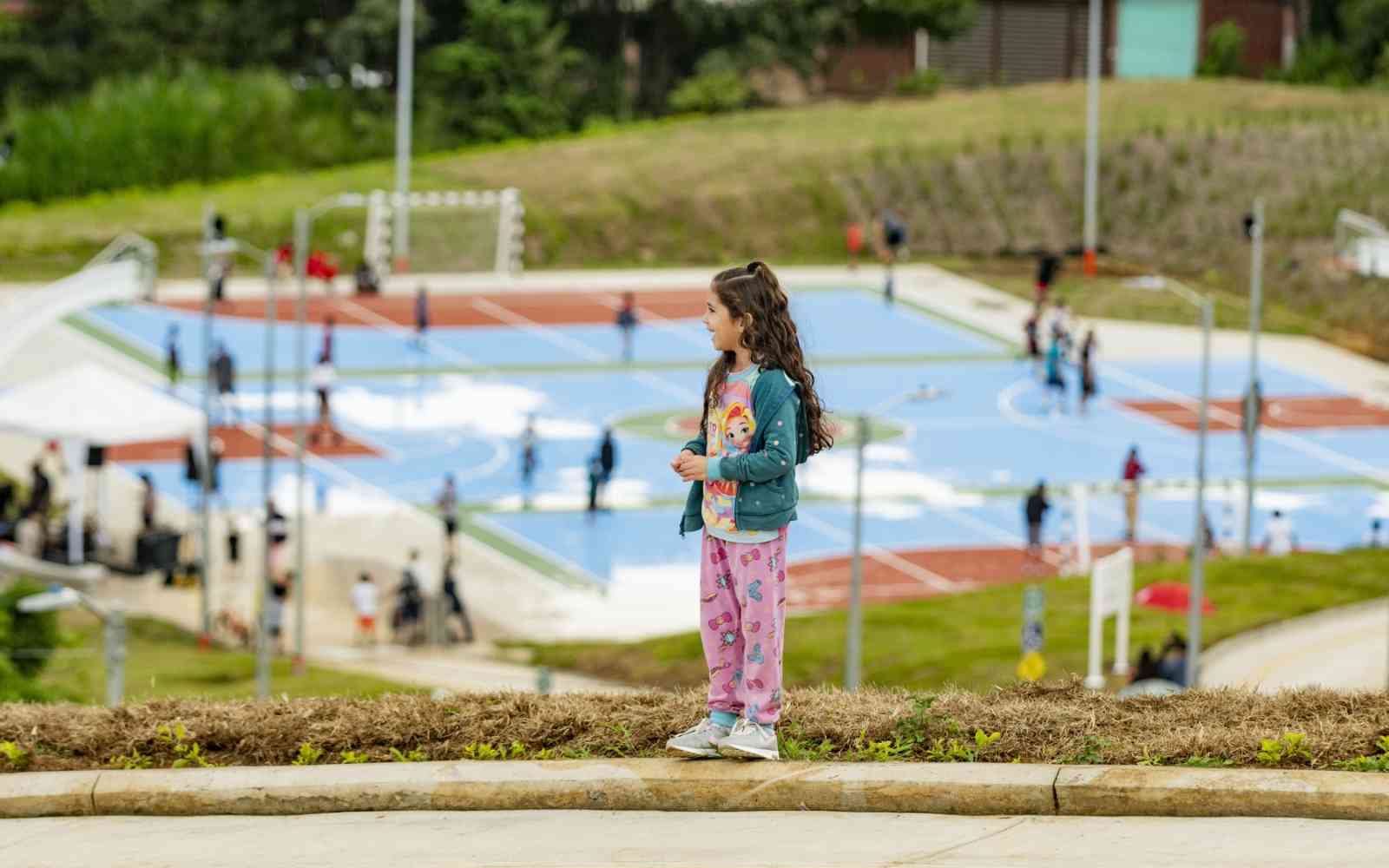The United Nations Office for Project Services (UNOPS)

Transforming lives with access to clean water
Access to safe drinking water is benefiting indigenous communities in Paraguay.
Located in the heart of South America, bordered by Argentina, Bolivia and Brazil, Paraguay is a landlocked country that is home to over 6.8 million people.
Among its population, more than 122,000 individuals identify as indigenous peoples, belonging to 19 groups and five linguistic families*.
Paraguay’s indigenous communities are some of the most vulnerable and marginalized people in the world. Many of these communities struggle to access basic services such as healthcare, education and clean water.
For the Jasukavenda and Piraymi indigenous communities living in the department of Amambay in Paraguay’s eastern region, a lack of access to safe drinking water is an everyday challenge.

I am already 36 years old and since I was a girl, the first thing I learned was to carry water on my back. That work is so heavy, sacrificial.
Fetching water requires walking long distances and the water collected in buckets isn’t sufficient to maintain basic hygiene and support growing crops. When water runs out at schools, classrooms are forced to shut down, disrupting children's education.
We suffer a lot from not having water because the stream is very far from the school [...] We lose a lot of time returning to teach classes.


We women [...] suffered a lot from having to carry water, because the distance to the stream is very great, more than 3,000 meters, and we had to carry [the buckets] on our backs.
In addition to affecting the well-being of residents in these communities, water from the stream is unsafe for human consumption – putting hundreds of people at risk of developing waterborne diseases.
To help address these challenges, UNOPS is working with ITAIPU Binacional to install water systems in 12 locations across the country, connecting more than 3,400 people, including 161 indigenous families, to clean water.

Connecting households to clean water
Hydrogeological studies were conducted to map the groundwater resources and determine the best location to drill a well in each community. An elevated water tank was then installed with a capacity of up to 50,000 liters – enough to meet the basic needs of the residents. The facilities have created hope for new opportunities.

I always dreamed and wanted to have a garden but I never could because the water is too far away. This year I will be able to prepare the garden because the water will be close.
The work also included the installation of water distribution networks and extending the existing electrical network to power the water pumps and the operational booth. Together, infrastructure delivers safe drinking water directly to households as well as two schools in the communities.

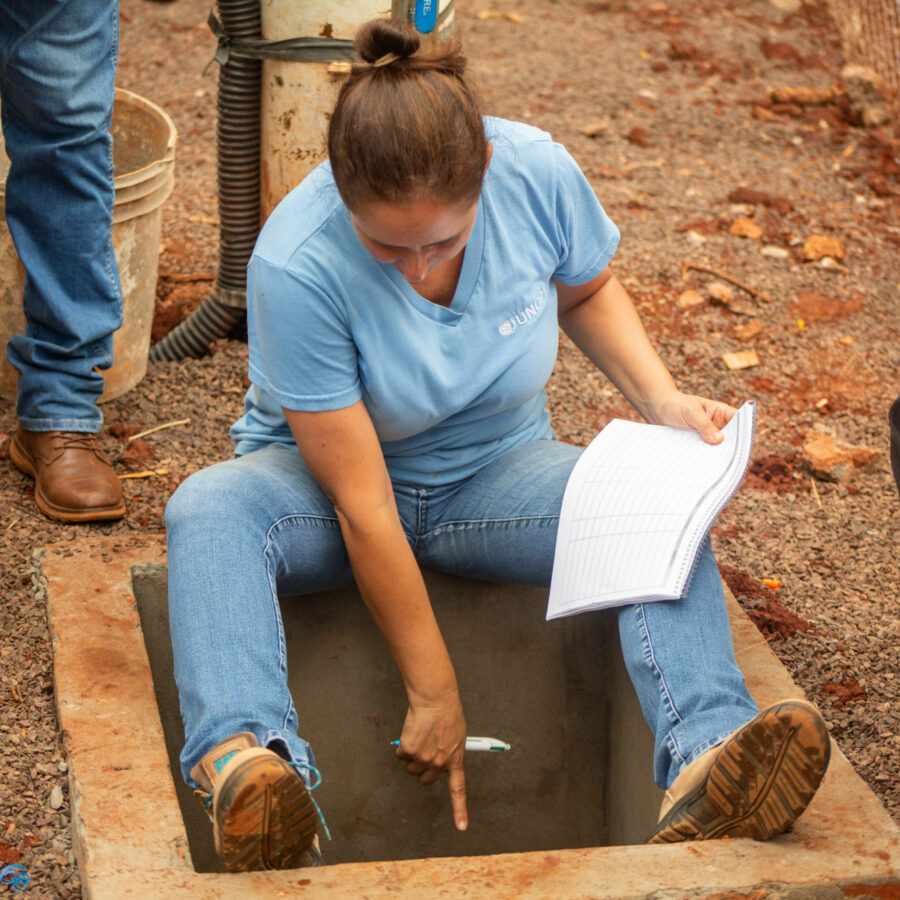

When the [water system] equipment arrived our hearts [...] were moved because we had already gone through so much suffering for years, because the water was very far away. We almost no longer had that hope that the water would really reach us.

Empowering vulnerable communities
At the heart of the project are the people.
A water committee was created in both communities and members received training on how to carry out administrative tasks, as well as to monitor and manage water quality – building local capacity and ensuring the water systems can be sustainably maintained within the community after the project ends.
Such community-led initiatives are key to supporting long-term sustainable development.
“We participated [in the training]. In fact, when those who do the training came, we were already getting together because we wanted to know everything about the [water systems]”, says Mónica Torales, member of the Piraymi community.





Access to potable water through a community-managed system not only benefits people's health, but is also a starting point for community empowerment that will help them address other needs.
For Florencia Romero, 84, there is no doubt that engaging the water committee changed her life for the better. Her home located outside of the village was too far to benefit from the initial project and she had to continue paying for someone to bring her water. To extend the reach of the distribution system, the water committee requested additional equipment. Using the skills and knowledge acquired through their training, they connected Florencia’s home to the water distribution network. Florencia can now access clean water in her home and save her pension for other things.
“As a committee we are now going to talk to the community to define what we are going to do when this is left in our hands, how to raise funds in case the pipes break down and other things, so we can buy ourselves,” says Marina Recalde, treasurer of the Jasukavenda Water Committee.
A positive change
161 families in the Jasukavenda and Piraymi indigenous communities have seen their well-being, health and livelihoods improve with the installation of the two drinking water systems. Some residents even dare to dream a little, recognizing the diverse health and social benefits access to clean water can have.

I think we are going to use it in orchards, in the kitchen, to wash, and to make a pool with fish. [...] It must be used in the correct measure and in the correct way.

About the project
- Rehabilitating 7 kilometers of roads to facilitate the safe transportation of goods and persons in all weather conditions
- Constructing water systems in 12 locations to provide access to safe drinking water to more than 3,400 people, including 161 families in the Jasukavenda and Piraymi indigenous communities.
Sources
- * https://paraguay.un.org/es/225709-desarrollo-de-los-pueblos-ind%C3%ADgenas-del-paraguay
- ** https://sdg6data.org/en/country-or-area/Paraguay









